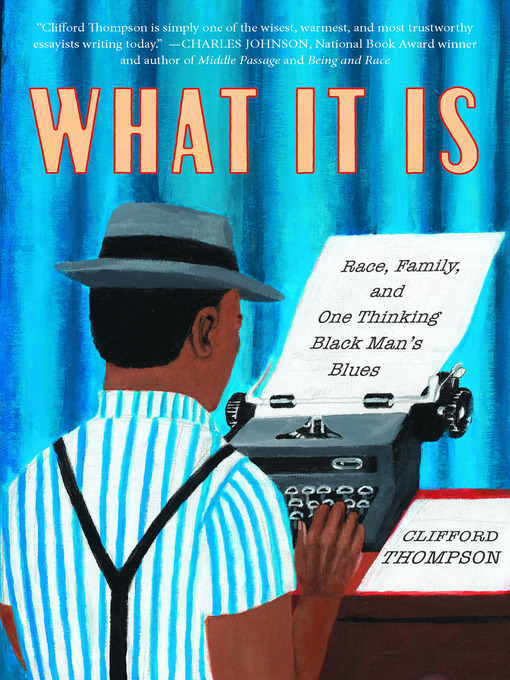
In the tradition of James Baldwin's The Fire Next Time and Ta-Nehisi Coates's Between the World and Me comes Clifford Thompson's What It Is. Thompson was raised to believe in treating every person of every color as an individual, and he decided as a young man that America, despite its history of racial oppression, was his home as much as anyone else's. As a middle-aged, happily married father of biracial children, Thompson finds himself questioning his most deeply held convictions when the race-baiting Donald Trump ascends to the presidency—elected by whites, whom Thompson had refused to judge as a group, and who make up the majority in this country Thompson had called his own.
In the grip of contradictory emotions, Thompson turns for guidance to the wisdom of writers he admires while knowing that the answers to his questions about America ultimately lie in America itself. Through interviews with a small but varied group of Americans he hears sharply divergent opinions about what is happening in the country while trying to find his own answers—conclusions based not on conventional wisdom or on what he would like to believe, but on what he sees.
-
Creators
-
Publisher
-
Release date
November 12, 2019 -
Formats
-
Kindle Book
-
OverDrive Read
- ISBN: 9781590519066
-
EPUB ebook
- ISBN: 9781590519066
- File size: 14661 KB
-
-
Accessibility
-
Languages
- English
-
Reviews

Loading
Formats
- Kindle Book
- OverDrive Read
- EPUB ebook
Languages
- English
Why is availability limited?
×Availability can change throughout the month based on the library's budget. You can still place a hold on the title, and your hold will be automatically filled as soon as the title is available again.
The Kindle Book format for this title is not supported on:
×Read-along ebook
×The OverDrive Read format of this ebook has professional narration that plays while you read in your browser. Learn more here.